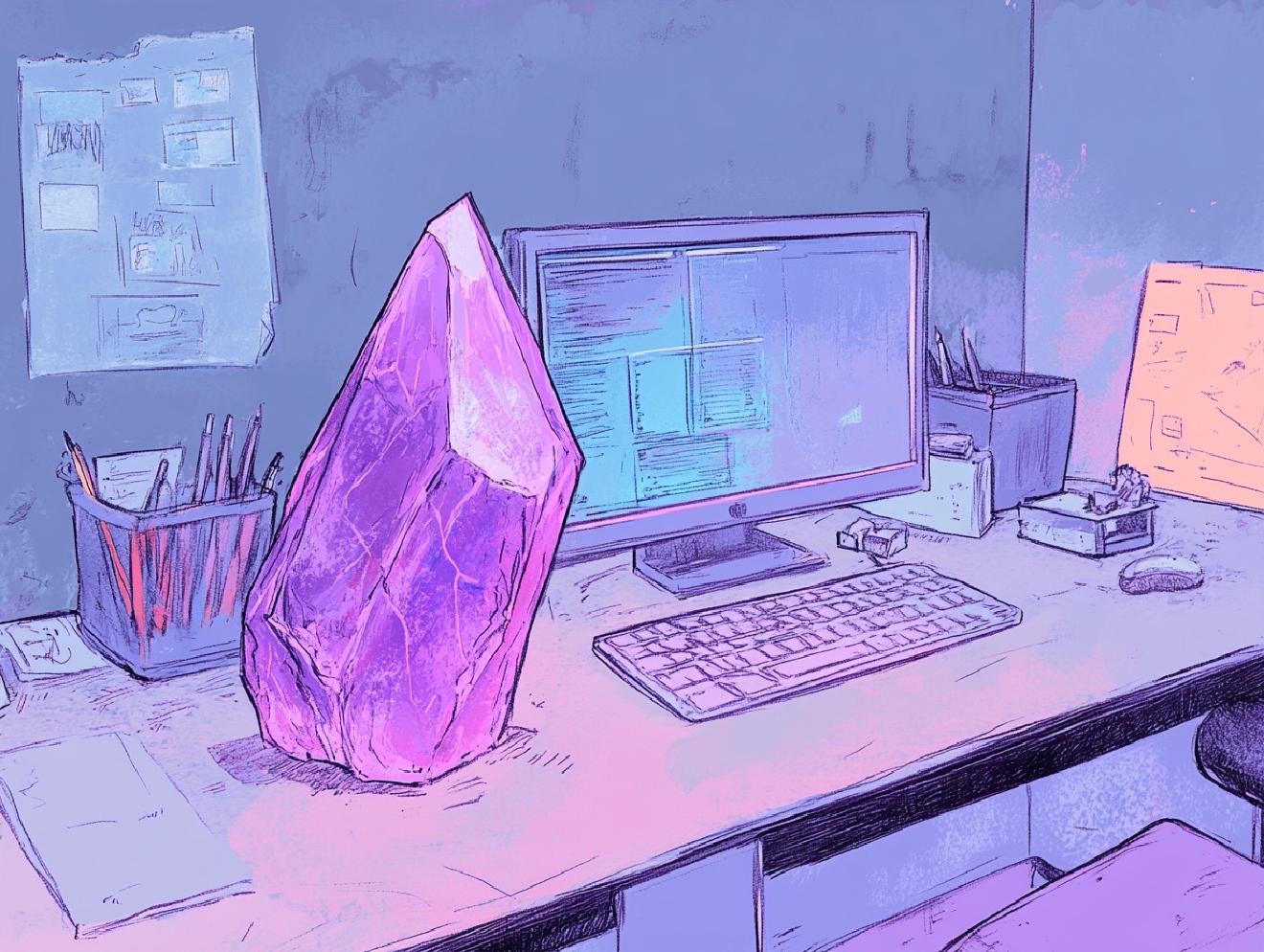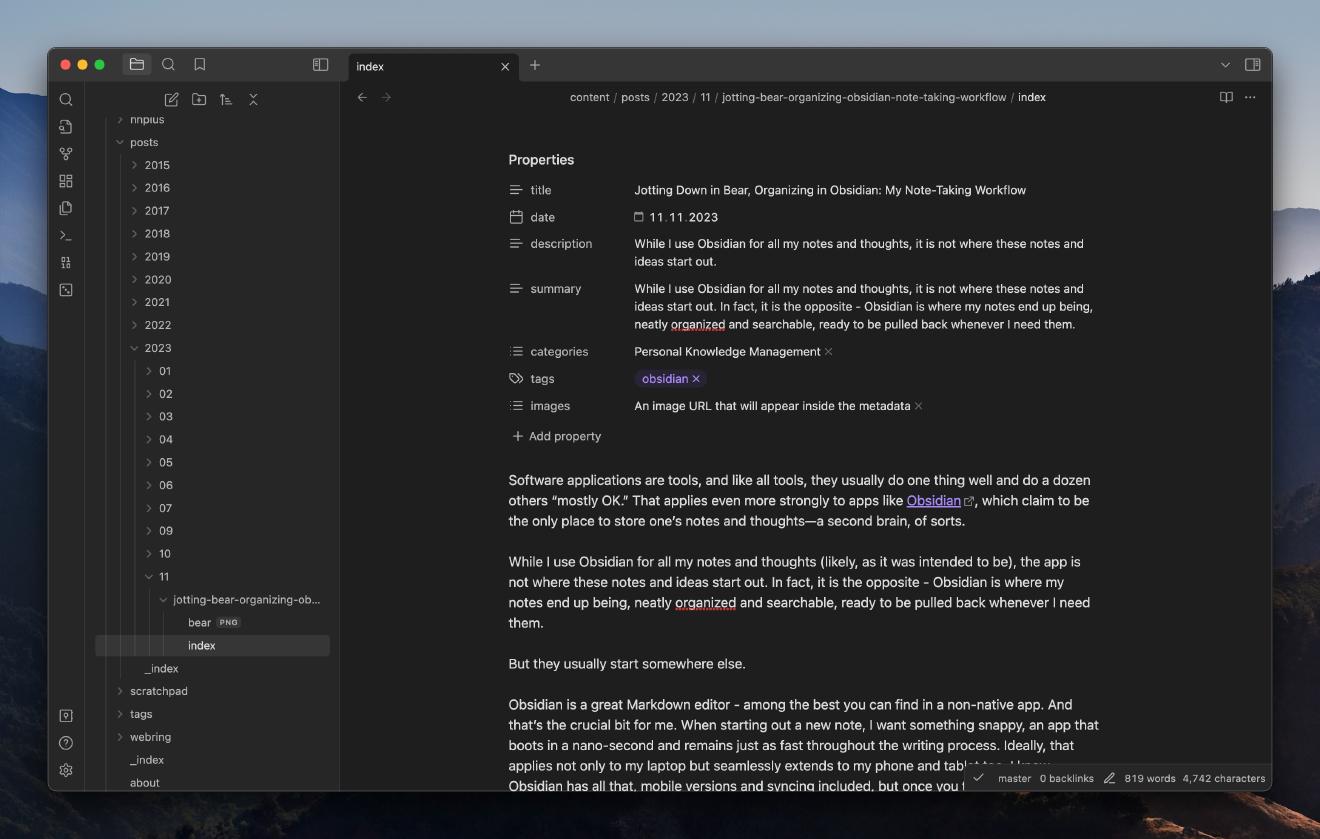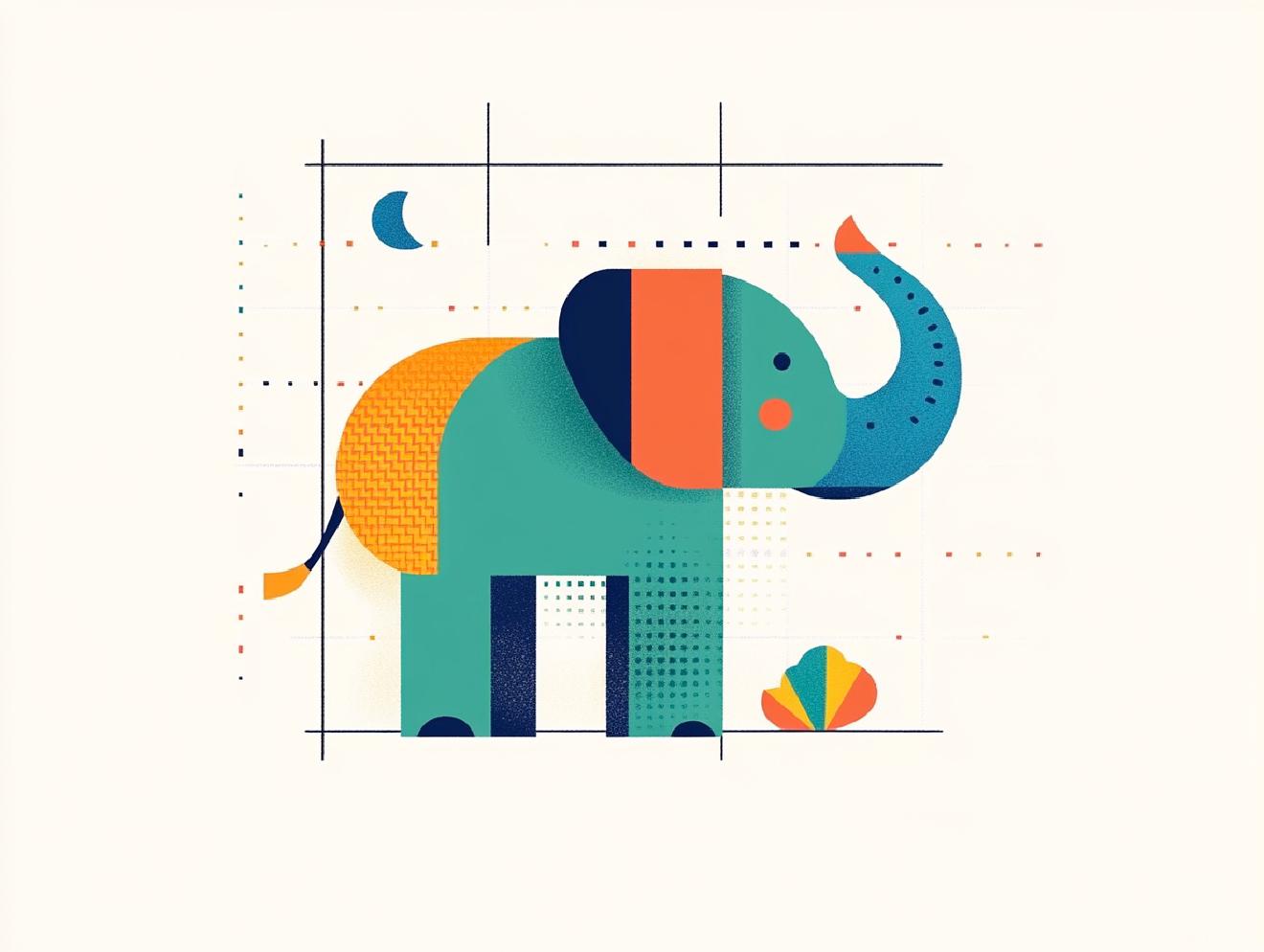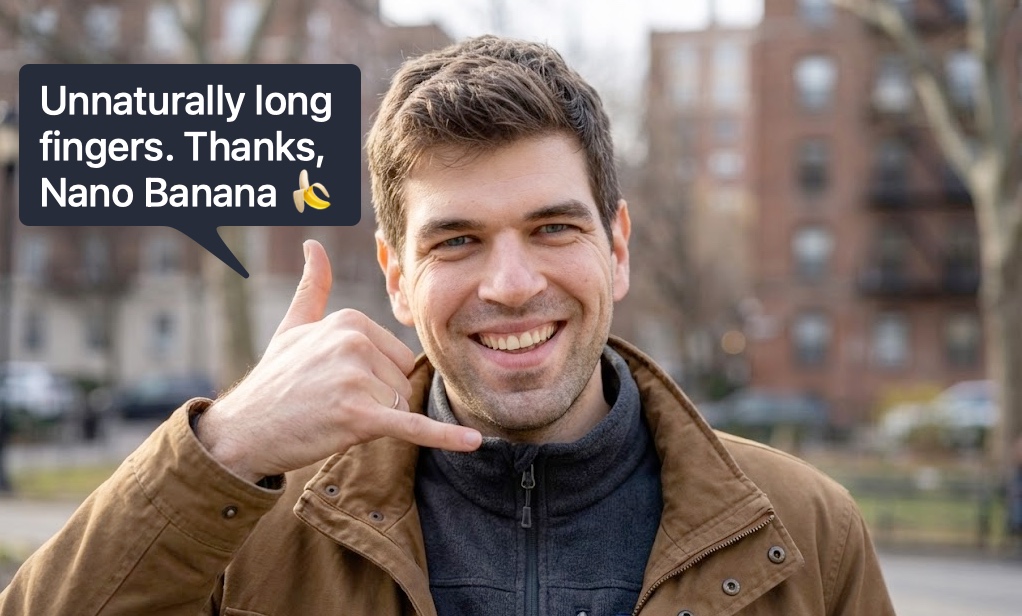November is for writing. To keep up with the tradition, I decided to dust off the Write Your Book with Obsidian draft and give it a go again. A couple of weeks and several pages later, I have become a little more convinced that the book may eventually see the light of day. While I am far from committing to a release deadline (work challenges I am yet to write about keep that from happening), I am a few steps closer.
And, here is where you, dear reader, come on board. I want to make sure that I am working on something that would help others, not just scratch my own itch. This is why I am sharing the book’s preface for you to make up your mind and see if you can relate to my story. If you do, go ahead and grab your copy of the draft while it is still free.
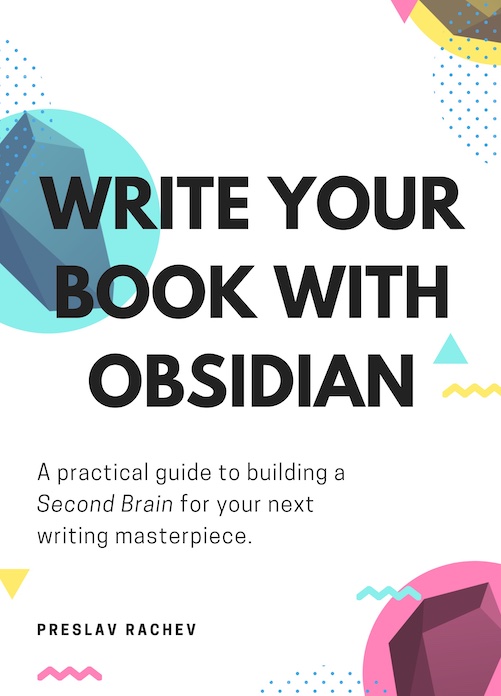
And now, to the preface:
The work on this book draft began around the middle of 2021. This is no coincidence, as 2021 was a year of hope, change, and a new beginning for many of us who refer to ourselves as knowledge workers. The COVID-19 Pandemic began a year earlier and would usher in a new era where remote work and digital collaboration became the new norm. Overnight, the tiny, scrappy desk at home would become a newsroom, a corporation’s conference room, a classroom, or a lecture hall. The phrase “the whole world at your doorstep” suddenly got a new meaning.
This had a darker side, too. Along with the loneliness, anxiety levels reached a new high as everyone became hooked to the Internet at all times. The constant flow of new information required a way out of all that - a vent, a place to mentally offload all that information and find ways to make it useful again. And, while going out in nature was not always an option in the first couple of years of the Pandemic, writing down one’s thoughts and ideas became a way to relax and reflect on what was happening.
Amidst all that, something that until then had been seen as a work-supportive activity now had the right mix of environment and the intrinsic urge to become a centerpiece of its own. But to fully appreciate it, one would have to walk down memory lane.
Digital note-taking has been a prominent use case for computers ever since the dawn of the PC era of the 1980s and 1990s. Yet, digital notes have been simply a form of digital scratch paper for much of its history. Once a note stopped fulfilling its purpose, just like its physical counterpart, one would toss it in the digital trash bin and delete it forever. The only alternative would be purchasing a heavyweight writing software, like Microsoft’s Word, which was expensive enough to discourage most people who wouldn’t directly make financial profit from its usage.
At about the same time, the roots of what we nowadays call the World Wide Web (or Web, for short) were forming. Armed with a simple markup language called HTML that was easy to write without specialized software, anyone could now write text, which, when viewed through a web browser, would make that text appear nicely styled and formatted, have images, and later on, become interactive to the point that people would eventually develop entire software applications with it. But what truly made the Web “browse-able” early on was HTML’s ability to add links within the text, which would point to other pages (which would then point to other pages, and so on). This is where the name World Wide Web originated from - a network of (hyper-)linked pages.
It would take more than three decades for the same concept to reach people’s personal note-taking space. It would be wrong to call it innovation, as the idea of networked thought has existed for decades or even centuries. Yet, the need only became apparent recently when the mental overload with information became difficult to bear without a proper system. And, thanks to software like Obsidian, we now have proper tools in our hands that would allow us to build a library of linked thoughts that is easy to explore, search thoughts, and format in any way we want, without complications or proprietary restrictions, much like a Web that is tailored to its own intrinsic needs and thoughts - a second brain of sorts.
Knowledge is only ever valuable if it is made applicable in a way in which it positively affects a large number of people. Keeping knowledge private is a burden; one is only ever free of it by sharing that knowledge with others - and writing a book is a fantastic way to do that.
Everyone has a story worth telling; many of you have probably gathered scattered bits and pieces over time. Yet, without proper structure, it is hard to see the forest for the trees. With this book, I want to inspire others to put the scattered bits into a single place and use that place as the launchpad of their next (or even first) writing creation. I will leverage the power of Obsidian and guide you through the process of using Obsidian not just as a note-taking app but as a platform for writing and organizing a book. You’ll learn how to harness its features to structure your ideas effectively, transform your scattered notes into a compelling manuscript, and put a version together that is ready for distribution. Whether you’re a seasoned author or a first-time writer, this book aims to empower you with the skills to turn your ideas into published work using the innovative capabilities of Obsidian.
Thank you for joining me on this journey!
Have something to say? Join the discussion below 👇
Want to explore instead? Fly with the time capsule 🛸
You may also find these interesting
Double-Click to Edit: Rethinking Note Interactions in Obsidian
Switching between reading and editing modes in Obsidian with ease: a simple home-made plugin that brings intentional editing to my note-taking workflow.
Artificial text is a statistical mashup of human quotes.
Artificial text is a statistical mashup of human quotes. When we quote AI, we quote quotes.
Jotting Down in Bear, Organizing in Obsidian: My Note-Taking Workflow
While I use Obsidian for all my notes and thoughts, it is not where these notes and ideas start out. In fact, it is the opposite - Obsidian is where my notes end up being, neatly organized and searchable, ready to be pulled back whenever I need them.
My Ego Is My Enemy. Your Ego Is Your Enemy.
Acknowledge that you don’t have all the answers. Let go of your desire to control every aspect of your life.
3 (+1) Things Evernote Got Right
A look at three features that made Evernote click for me back in the day — ones that modern note-taking apps still struggle to replicate fully.
